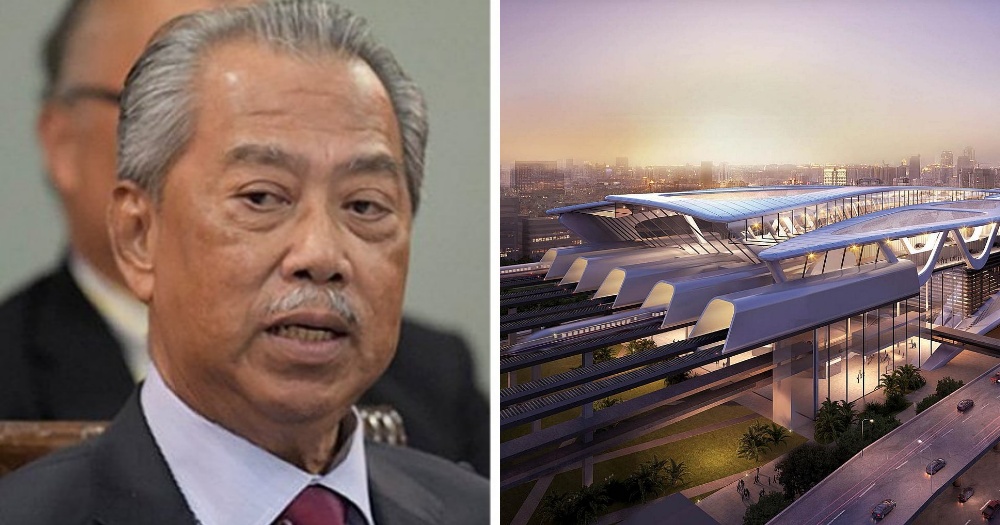Follow us on Telegram for the latest updates: https://t.me/mothershipsg
The termination of the Kuala Lumpur-Singapore High Speed Rail was the big news that rang in the new year.
Around seven years in the making, the bilateral project between Malaysia and Singapore was terminated after Malaysia suspended it twice, first in 2018 and then in 2020.
Both Singapore and Malaysia announced via a joint statement on January 1 that Malaysia had proposed several changes to the HSR project in light of the Covid-19 pandemic.
Despite several discussions, both countries were unable to reach an agreement.
Singapore considered Malaysia's proposed amendments in good faith, said Transport Minister Ong Ye Kung in Parliament on January 4, but there was one stumbling block:
"But we were unable to agree to one particularly significant change proposed by Malaysia. This involved the removal of the Assets Company, the system supplier and network operator of the HSR service."
What is the Assets Company?
The original structure of the HSR project was a private-public partnership with three main components.
The first component consists of government subsidiaries who build, finance, and maintain the civil infrastructure (such as the termini) in their respective countries.
The second component is a privately-financed Assets Company, appointed by both governments to design, finance, and maintain all rail assets and rolling stock (trains) for the HSR, and oversee the network.
According to Ong, this Assets Company would also ensure that appropriate priority is given to cross-border HSR service in relation to Malaysia’s domestic service, and be accountable to both Singapore and Malaysia.
The third component consists of operators who will lease the rail assets and provide the actual HSR service — both domestic and cross-border.
Assets Company vital to protect Singapore's interest
The Assets Company is important because it protects the interest of both countries, said Ong.
Under the HSR Bilateral Agreement that was signed in 2016, the Assets Company had to be appointed through an international tender:
"Because neither country has the experience and expertise in operating a cross-border HSR, we agreed under the HSR BA to appoint a best-in-class industry player, through an open and transparent international tender, to assume the role of the Assets Company."
Malaysia ultimately proposed to do away with the Assets Company — a "fundamental departure from the HSR Bilateral Agreement and could not be accepted", according to Ong.
Former Malaysian Prime Minister Najib Razak (incidentally the one who brokered the HSR deal with Singapore Prime Minister Lee Hsien Loong in 2016) said on January 1 that doing away with the Assets Company would allow the Malaysian government to:
"... make all the procurement decisions and award contracts to anyone on its own, compared to the joint venture model where all procurement and selection of vendors had to be made together and monitored by both countries."
You can watch a livestream of the January 4 Parliament sitting here:
Top image of Malaysian Prime Minister Muhyiddin via Free Malaysia Today, Artist impression of HSR terminus in KL.
Totally unrelated but follow and listen to our podcast here
If you like what you read, follow us on Facebook, Instagram, Twitter and Telegram to get the latest updates.
